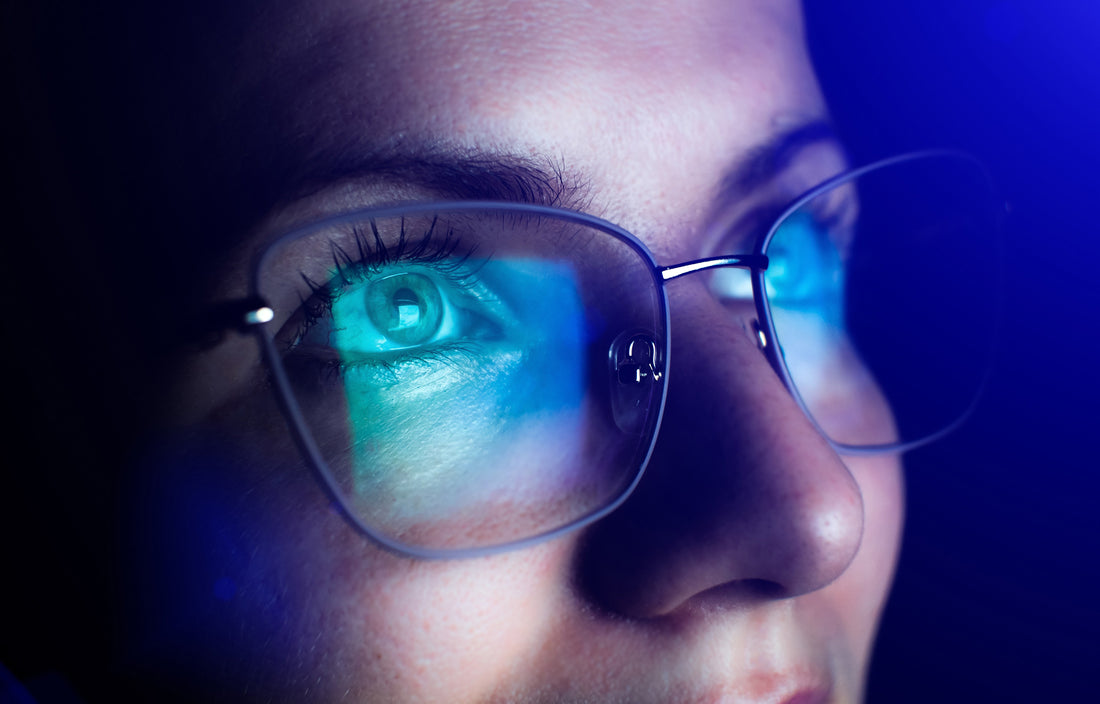The human eye is delicate and complex. These fluid-filled spheres have three distinct layers that work together to convert light into electrical signals and visual images that the brain then interprets.1 The retina at the back of the eye is especially important because it triggers the nerve impulses to the brain so the brain can create the visual image.1 Your vision is incredibly valuable, which means supporting eye health is an important goal. But how do you do that?
Best Eye-Supporting Strategies
Just like any part of the human body, the eyes can become strained and fatigued. To reduce eye strain, take breaks from doing activities that require you to focus for a long time such as driving long distances or working on the computer.
In addition, artificial blue light from digital devices such as smartphones, televisions, and tablets has also been shown to strain vision and harm eye health, especially the retina.2 Fortunately, there are two key herbs—lutein and zeaxanthin—that have been shown to help support retinal health and overall visual performance especially when exposed to the effects of blue light rays.
Lutein and zeaxanthin contain carotenoid compounds which are known to be powerful antioxidants that are found in the eye’s lens and retina.3 In fact, the concentration of these two carotenoids is many times higher in the retina compared to any other tissue in the body. Research shows that both lutein and zeaxanthin help support the health of the retina, in particular, the macula located near the center of the retina that is responsible for clear vision.4
Lutein and zeaxanthin are found in high amounts in dark green leafy vegetables such as lettuce, kale, and spinach. A study looking at diet found that people who consistently ate dark, green leafy vegetables had better eye health than people who did not eat those veggies.5 If you’re not getting enough of these dark green leafy vegetables in your diet, lutein and zeaxanthin are available as a dietary supplement.
According to the American Optometric Association, in addition to lutein and zeaxanthin other nutrients that are good for your eyes include vitamins C and E, omega-3 fatty acids, and zinc.6
Energize Your Eyes
Every day, your eyes are working hard to give you a visual image of the world that surrounds you. The retina is particularly important because it communicates directly with the brain so the brain can form the images you see. Through a combination of diet and dietary supplements, especially lutein and zeaxanthin, you can help support healthy eye function and healthy eye aging. These supplements can also be used alongside blue light-blocking glasses to help further support eye health and eye function.
Read our blog and learn how to choose clean supplements. Plus, don’t forget to follow @zhou_nutrition for more fitness and wellness tips!
References
- InformedHealth.org. How does the eye work? 2019;May 9. https://www.ncbi.nlm.nih.gov/books/NBK279191/?report=reader
- Wong NA, Bahmani H. A review of the current state of research on artificial blue light safety as it applies to digital devices. Heliyon. 2022;8(8):e10282. https://www.ncbi.nlm.nih.gov/pmc/articles/PMC9420367/?report=reader
- Mrowicka M, Mrowicki J, Kucharska E, Majsterek I. Lutein and Zeaxanthin and Their Roles in Age-Related Macular Degeneration-Neurodegenerative Disease. Nutrients. 2022;14(4):827. https://www.ncbi.nlm.nih.gov/pmc/articles/PMC8874683/?report=reader
- Ma L, Liu R, Du JH, Liu T, Wu SS, Liu XH. Lutein, Zeaxanthin and Meso-zeaxanthin Supplementation Associated with Macular Pigment Optical Density. Nutrients. 2016;8(7):426. https://www.ncbi.nlm.nih.gov/pmc/articles/PMC4963902/?report=reader
- Seddon JM, Ajani UA, Sperduto RD, et al. Dietary carotenoids, vitamins A, C, and E, and advanced age-related macular degeneration. JAMA. 1994;272(18):1413-20. https://pubmed.ncbi.nlm.nih.gov/7933422/
- American Optometric Association. Diet and nutrition. Accessed July 23, 2023. https://www.aoa.org/healthy-eyes/caring-for-your-eyes/diet-and-nutrition?sso=y



